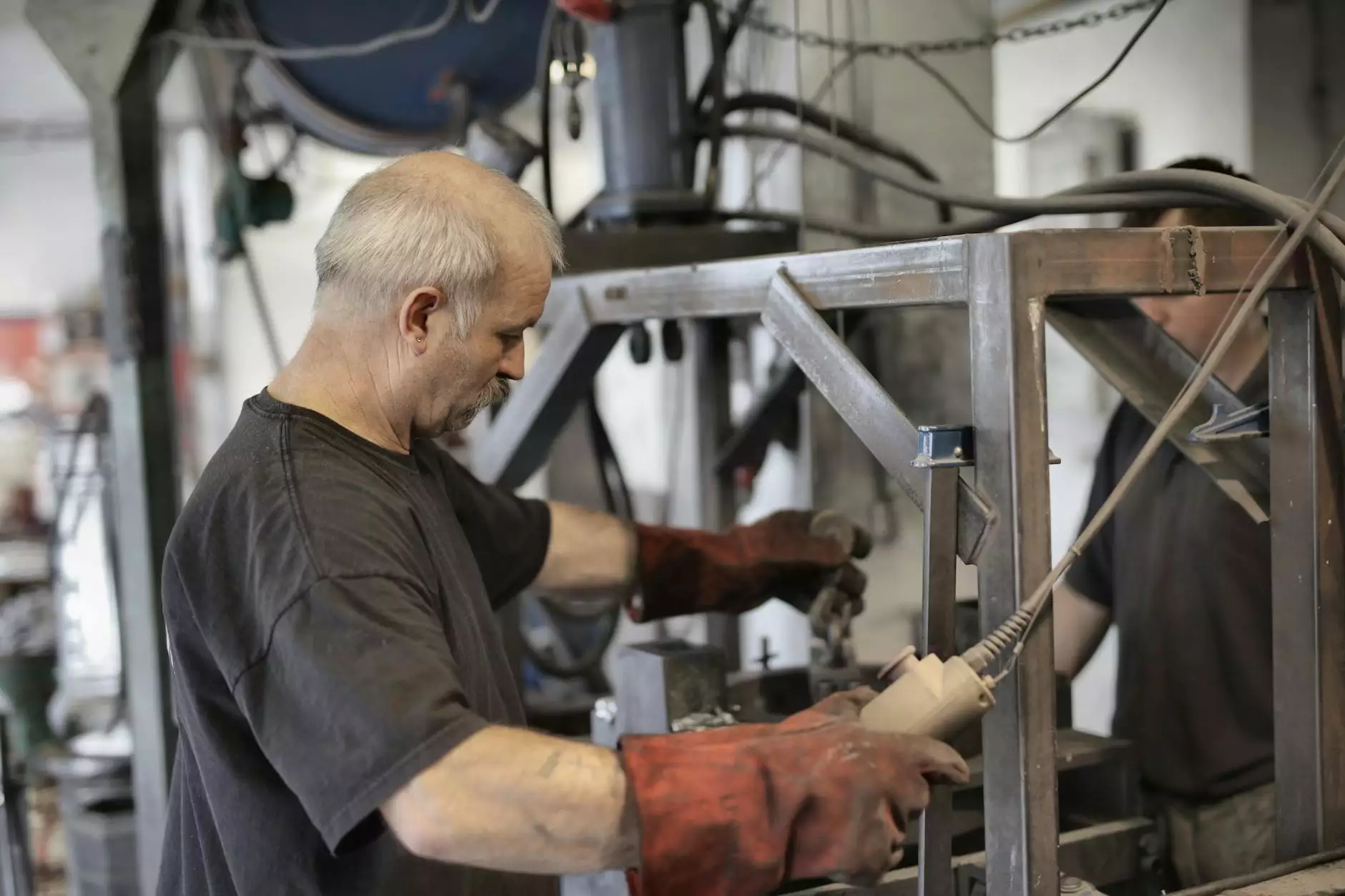The Robust World of Auto Parts Manufacturers: A Comprehensive Guide

The automotive industry is vast and complex, with a significant backbone comprising auto parts manufacturers. These manufacturers play a crucial role in ensuring that vehicles operate efficiently, safely, and effectively. In this extensive article, we will delve into the importance of auto parts manufacturers, the various kinds of parts they produce, the processes involved, and the future of the industry.
Understanding the Role of Auto Parts Manufacturers
Auto parts manufacturers are companies that design, develop, and produce the components necessary for automotive vehicles. This includes everything from the engine and transmission to the smallest electronic components. They form an integral part of the automotive supply chain, providing essential inputs to automotive assemblers and aftermarket service providers.
1. The Importance of Quality in Auto Parts Manufacturing
The quality of auto parts directly impacts vehicle performance, safety, and longevity. High standards in manufacturing processes ensure that components meet regulatory requirements and consumer expectations. Here are some key points on the importance of quality:
- Safety: High-quality parts reduce the chances of failures that could lead to accidents.
- Durability: Quality parts are often more durable, providing better value over time.
- Performance: Effective parts contribute to better engine performance and fuel efficiency.
2. Types of Auto Parts Manufactured
Auto parts manufacturers produce a wide variety of components. Below are some of the main categories:
- Engine Parts: This includes components like pistons, crankshafts, and cylinder heads.
- Transmission Parts: Gears, bearings, and clutches are essential for vehicle driveability.
- Electrical Parts: Batteries, alternators, and sensors are crucial for modern vehicles.
- Suspension and Steering: Parts such as shock absorbers and control arms help in vehicle handling.
- Braking Systems: Components like brake pads, rotors, and calipers are essential for safety.
- Body Parts: This category includes fenders, bumpers, and chassis components.
The Manufacturing Process: From Concept to Production
The journey of an auto part from concept to production involves several critical phases:
1. Research and Development (R&D)
R&D is where innovative designs are conceived. Manufacturers invest heavily in technology to understand the latest trends and consumer demands, ensuring they remain competitive in the ever-evolving automotive landscape.
2. Prototyping
Once a design is finalized, prototypes are created. This phase allows manufacturers to test the fit, function, and performance of the parts before mass production begins.
3. Mass Production Techniques
Once the prototype passes all tests, it moves to the mass production stage. The most common techniques include:
- Injection Molding: Used primarily for plastic parts.
- Die Casting: Ideal for producing metal parts with precision.
- Machining: Essential for creating components that require high accuracy.
4. Quality Control
A rigorous quality control process ensures that all components meet the necessary specifications. This may include inspections, stress tests, and performance evaluations to ascertain durability and safety.
Sustainability Practices in Auto Parts Manufacturing
With growing concerns surrounding environmental sustainability, many auto parts manufacturers are adopting greener practices. Some key initiatives include:
- Recyclability: Developing parts that can be easily recycled at the end of their life cycle.
- Energy Efficiency: Implementing processes that consume less energy during manufacturing.
- Reduced Emissions: Striving to minimize greenhouse gases during production and transportation.
The Future of Auto Parts Manufacturing
The automotive industry is on the brink of transformation with the rise of technologies such as electric vehicles (EVs), connected cars, and automation. This evolution presents new opportunities and challenges for auto parts manufacturers.
1. Electric Vehicles (EVs)
The shift towards electric mobility means that traditional parts manufacturers must adapt. This may involve:
- Developing battery components and related technologies.
- Producing parts that optimize energy efficiency.
2. Automation and Robotics
Automation in manufacturing processes enhances efficiency and reduces human error. Future auto parts manufacturers will likely increase their reliance on robotics for assembly, quality control, and logistics.
3. Integration of Smart Technologies
As vehicles become increasingly connected, manufacturers will need to produce components that support technological integration, including:
- Advanced driver-assistance systems (ADAS): Parts that support these systems will be crucial.
- Connectivity modules: Enabling vehicles to communicate with each other and infrastructure.
Challenges Faced by Auto Parts Manufacturers
While the future holds promise, it also brings challenges. Some of the primary concerns include:
- Supply Chain Disruptions: Factors such as geopolitical tensions and pandemics can impact production.
- Regulatory Changes: Adapting to evolving environmental regulations can be costly and complex.
- Competition: The rise of new players, particularly in the EV sector, increases market competition.
Choosing the Right Auto Parts Manufacturer
For automotive businesses, selecting the right parts manufacturer is critical. Here are some factors to consider:
- Experience and Reputation: Look for manufacturers with a proven track record.
- Quality Certifications: Ensure they meet industry standards (e.g., ISO certification).
- Technological Capabilities: Choose manufacturers that invest in advanced technology.
- Customer Support: Effective communication and support are essential for a successful partnership.
Conclusion
The landscape of auto parts manufacturers is both dynamic and essential to the overall performance of the automotive sector. Their commitment to quality, innovation, and adaptation to new challenges ensures that vehicles will not only meet but exceed consumer expectations for safety, performance, and sustainability.
As we look into the future, the role of these manufacturers will continue to evolve, driven by technological advancements and a heightened focus on sustainability. Choosing the right partners in this field is crucial for businesses aiming to thrive in the competitive automotive market.









